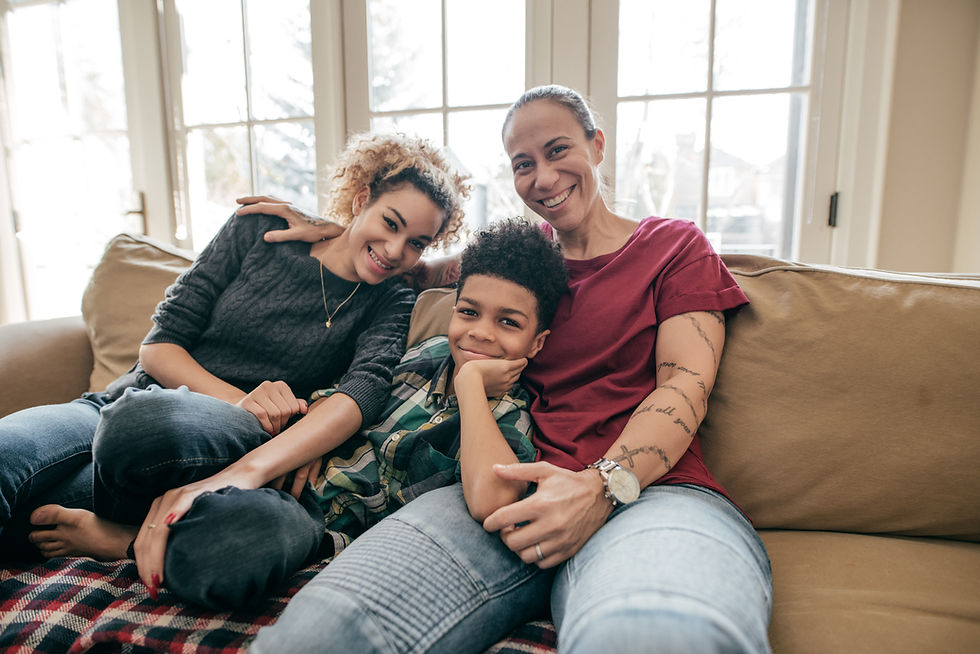Creating a Safe Space: Why Rapport Building Matters in Therapy
- Ally Bremer
.jpg/v1/fill/w_320,h_320/file.jpg)
- Jun 30, 2025
- 3 min read
First of all, what’s “rapport” and why does it matter? The exact definition of rapport is: “a close and harmonious relationship in which the people or groups concerned understand each other’s feelings or ideas and communicate well”. In simpler terms, having a trusting and understanding relationship with others. This is a very, very important thing to have in therapy.
Why does building trust and rapport come before therapy “work”?
I understand how getting into therapy for your kids, you’re interested in working on goals right away. Although, if a client of mine doesn’t feel comfortable around me, there’s almost no use in trying to work on those goals just yet.
The goal of therapy is to help others with their social and emotional well-being. Establishing an open and trustworthy relationship helps start the process of this. It helps build an environment that helps clients feel understood, comfortable, and respected. Having this type of space increases the likelihood of more positive interactions and stronger connections. And that’s a great thing to have with many people, especially your therapist.
I mean just imagine it, if we don’t build rapport first, we’re basically strangers. I can understand how some kids may feel shy, nervous, and/or hesitant to talk to this “stranger”.
It’s also important because once we get to know each other more, then I can be more “stern” in sessions. For example, making sure a plan is in place and expectations are understood. It’s easier to work on lessons and goals with that as well.
How do therapists approach rapport-building with children and teens?
I’m sure a lot of therapists approach rapport-building similarly, yet differently :). For me, I ensure that my client has time in session without any pressure. I also want them to see a silly and comforting side of me to notice that I am a safe person to be around. I don’t only want my clients to see a professional side of me, but also the real me who cares, acts silly, is understanding, and who tries hard to make sure therapy is a good experience.
Some therapists might approach rapport-building by letting their clients choose what they want to do or talk about at first. Furthermore, they might encourage a pressure-free space. If a client has seen a therapist previously, some therapists ask about their experience and how they can make it better this time around.
How does rapport-building differ between age groups (young children vs. teens)?
Again, it truly may depend on where the client is at. For young children, games helps so so much, and making them laugh. If they are laughing and smiling, that’s showing me that they’re having a good time and becoming more comfortable.
For teens, an understanding perspective is a game changer, as well as making sure they’re aware of confidentiality. They need their own space, and knowing that they can have that means something to them. When they’re not reading to dive right into what they started therapy for, get-to-know-you games and having a chill environment can help as well- same for some of the younger children as well.
How does rapport connect to feeling heard and understood and why is it healing?
Rapport connects to feeling heard and understood because like mentioned before, it helps people to be themselves in a space that they might not have often. It’s healing because it brings a feeling of not being judged. It helps bring thoughts and feelings of being valued with who they are. It’s always great to know that you mean something to someone, and that the feelings that are brought with you mean something too.
If there wasn’t a nicely built safe space environment then therapy wouldn’t be what it is and what it should be. Unfortunately there are people that don’t have a good experience in therapy. You should feel heard and respected during the time that you’re using.
What role does consistency play in rapport?
This one can be tough for some, but it’s important. Consistency is part of the key components that go into rapport building. When talking about working with younger children, when they need to be comfortable with whoever they are working with. That’s why staying consistent in session and structure of therapy is important for working towards their goals. Structure helps ease anxiety into the unknown- not knowing what to expect in a session. Consistency in sessions can help others stay comfortable and used to the vulnerable environment.
All in all:
Like mentioned before, some rapport building techniques can vary depending on the therapist. Although, even with this variety, each one is helpful in the therapeutic process. Giving space to feel comfortable with who they are and what they want to talk about is essential.

Written By,
Eliana Cohn, LSW




Comments